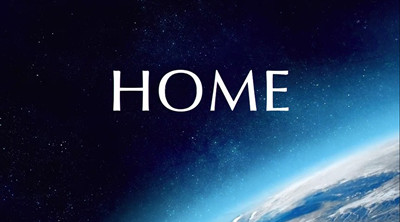Towns change humanity's nature, as well as its destiny.
城镇改变人类本质和命运。
The farmer becomes a craftsman, trader or peddler.
农夫变成了工匠、商人和小贩。
What the Earth gives the farmer, the city dweller buys, sells or barters.
农夫收获,城镇居民购买,或是物物交换。
Goods change hands,along with ideas.
商品交易伴随思想交流。
Humanity's genius is to have always had a sense of its weakness.
人类的天份在于经常洞悉自已的弱点。
Humans tried to extend the frontiers of their territory,but they knew their limits.
他们很想扩张领土,但明白自身局限。
The physical energy and strength with which nature had not endowed them...
大自然不曾赋予他们的能量和气力。
was found in the animals they domesticated to serve them.
他们在动物身上找到 并驯养它们为己服务。
But how can you conquer the world on an empty stomach?
空着肚子怎去征服世界?
The invention of agriculture...transformed the future of the wild animals scavenging for food...that were humankind.
农业的发明彻底改变了到处觅食的野兽本质成为真正的人。
Agriculture turned their history on end.
农业改写了人类历史。
Agriculture was their first great revolution.
农业是人类的第一场伟大革命。
Developed barely 8,000 to 10,000 years ago,it changed their relationship to nature.
八千至一万年前开始,农业改变了人类与自然的关系。

It brought an end to the uncertainty of hunting and gathering.
它终结了人类不稳定的狩猎和采集时代。
It resulted in the first surpluses...and gave birth to cities and civilizations.
第一次有了盈余,这催生了城市和文明。
For their agriculture,humans harnessed the energy of animal species and plant life,from which they at last extracted the profits.
为了农业生产。人类利用动物或植物的能量并从中受益。
The memory of thousands of years scrabbling for food faded.
数千年艰苦觅食的记忆逐渐淡忘。
They learned to adapt the grains that are the yeast of life...to different soils and climates.
他们学会将谷类适应不同的土壤和气候。
They learned to increase the yield and multiply the number of varieties.
他们学会增加农作物的收成和种类。
Like every species on Earth,the principal daily concern of all humans is to feed themselves and their family.
像地球上所有动物。人类每天的首要任务是喂饱自已和家人。
When the soil is less generous and water becomes scarce, humans deploy prodigious efforts to mark a few arid acres.
当土瘠水稀的时候人类要为一点干燥土地。
With the imprint of their labor.
而拼命劳作。











